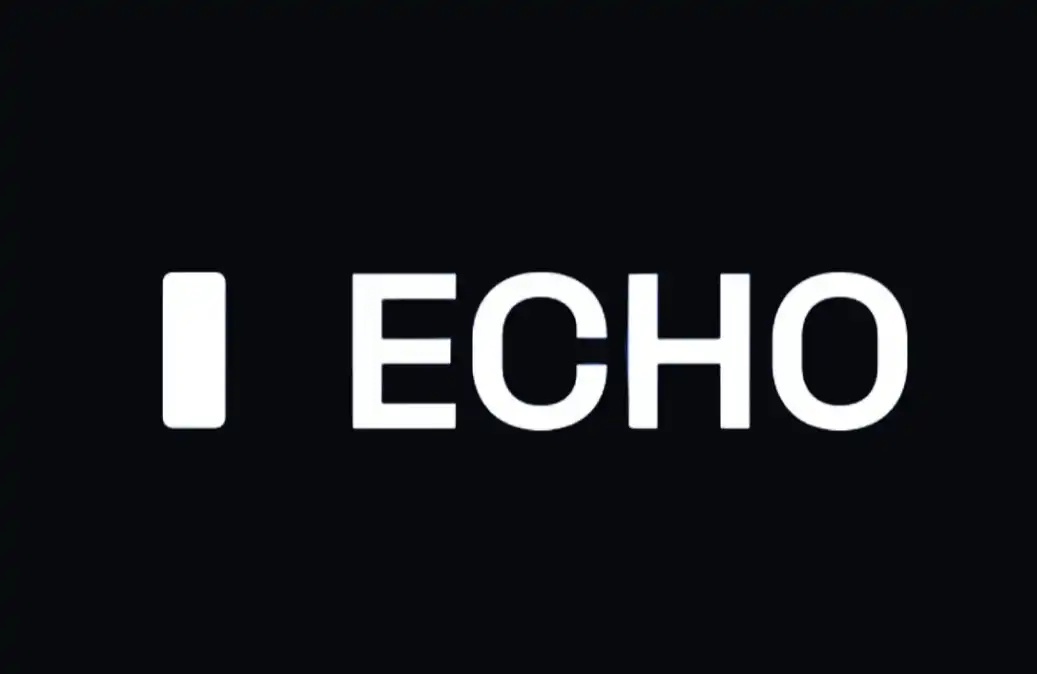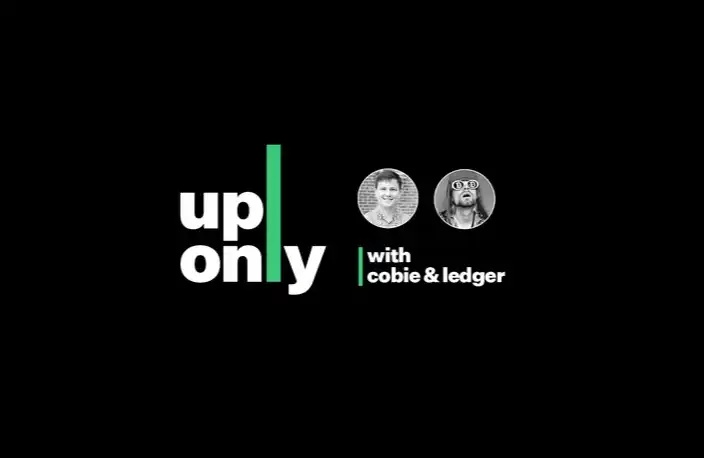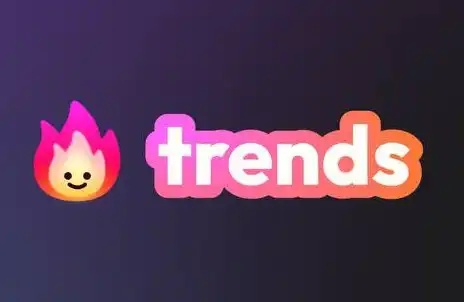What impact will Worldcoin have on the cryptocurrency industry if it succeeds?
Author: LeftOfCenter
According to sources, Sam Altman, the founder of OpenAI, is seeking a new round of funding of $100 million for his new cryptocurrency project, Worldcoin. The project is currently in advanced negotiations and has received support from both existing and new investors, according to a source cited by the Financial Times. Worldcoin was valued at $3 billion in 2022 after receiving investments from institutions such as Andreessen Horowitz (a16z) and Khosla Ventures, which tripled its valuation in just one year. In October 2021, Worldcoin completed a $25 million Series A funding round led by a16z, with a valuation of $1 billion. Other investors include Digital Currency Group, Coinbase Ventures, Multicoin, as well as angel investors such as Sam Bankman-Fried, the founder of FTX, and Reid Hoffman, the co-founder of LinkedIn.
It is not easy to raise funds in the cold winter of the encryption industry, and it is even more difficult to obtain such a huge amount of funding. Why did Worldcoin, which was still unknown before, receive capital favor two years later and still be able to secure a huge investment with a valuation of 3 billion in the encryption winter? What investment potential do investors see in Worldcoin? What does Worldcoin mean for the wallet track and the encryption industry?

Worldcoin Introduction
Worldcoin was proposed by Altman in 2019, inspired by the economist's theory of "Universal Basic Income (UBI)". The goal is to achieve fair distribution of wealth by sending free cryptocurrency Worldcoin. Simply put, it is to redistribute the wealth created in the AI era through the "money distribution" method of Universal Basic Income (UBI).
Since it is free money distribution, a method is needed to determine the user's identity and prevent the same person from claiming tokens multiple times with different identities. Thus, World ID was created as the underlying identity protocol for Worldcoin, which ensures that each person can only register one account with their iris.
Additionally, the team has developed a biometric device that verifies a person's uniqueness by scanning their iris, while ensuring the privacy of the verified individual through zero-knowledge proof. This scanner, called Orb, is currently in beta testing and features an open-source design with two lenses, a wide-angle and a telephoto, working in conjunction with a neural network to capture high-definition images of the pupil. Due to compliance restrictions, the hardware is currently only available for trial in select regions, including Argentina, Chile, India, Kenya, Portugal, and Spain.

Orb's function is very simple: scan the human iris and convert the biometric image into an unbreakable hash code consisting of letters and numbers, which Worldcoin calls "IrisCode". If the data is verified as a new registered user by comparing it with the database, a new WorldID will be added to the Worldcoin database, and an encrypted wallet with a QR code will be generated, allowing users to obtain free Worldcoin tokens through this wallet.
Overall, Worldcoin is a product ecosystem built around UBI. It includes three products in total: WLD Token, which will be distributed for free to 1 billion people worldwide, World ID, a verification protocol for determining real identities, and World App, a wallet for storing tokens.
From the narrative of a grand vision to the initial product form and user data
Worldcoin, based on the UBI theory, has a lofty ideal since its inception - to distribute digital currency for free to the 7.9 billion people worldwide and achieve fair distribution of wealth.
"Through UBI, billions of people around the world can escape poverty and achieve the goal that Bitcoin cannot achieve due to its high cost and slow transaction speed - to expand cryptocurrency and its financial system to hundreds of millions of people." This is a bold plan and a utopian vision. While the vision is beautiful, it is also easy to become a pure narrative. With a relatively small user base in the cryptocurrency industry, Worldcoin's ambition has been questioned, comparable to the "moon landing plan".
However, after two years of silent development, Worldcoin has begun to take shape in terms of product form and user growth. Beyond its ideal narrative logic, its business logic is also becoming clear.
First of all, sending Free coin to users worldwide is not only a narrative technique, but also a very smart customer acquisition strategy. Every time a new account receives cryptocurrency, it brings a new wallet user to Worldcoin, which will help Worldcoin seize the wallet entrance. In the cryptocurrency industry, mastering the wallet is equivalent to seizing the traffic entrance.
According to data, the ecological wallet "World App" launched a small-scale test a few days ago. Currently, there are nearly 1.7 million registered users, and the speed of acquiring new users is rapidly increasing at a rate of one new user every 14 seconds, making it the fastest-growing wallet in the world. Users have completed website, mobile application, and encrypted DApp login authentication over 6.3 million times through World ID, with a total of over 690,000 transactions and a daily transaction volume of 60,000 transactions.

At first glance, 1.7 million may not seem like an impressive figure, but for the cryptocurrency industry, it is still a significant number.
Worldcoin's breakthrough is not without reason. At least from the product design of the recently released "World App" in the ecosystem and the economic model of Worldcoin, we can see some traceable fundamentals.
In product design, the team "accurately positions target users and optimizes the usability of the product".
Due to objective compliance issues, most of the countries currently open to Worldcoin are in third world countries and regions. This means that from the beginning, Worldcoin has taken the route of surrounding cities from rural areas, which also coincides with Worldcoin's main goal of inclusive finance. Inclusive finance, of course, prioritizes coverage of underdeveloped countries with weak financial infrastructure, which is the vast population of Asia, Africa, and Latin America currently covered by Worldcoin.
Since we are taking the inclusive finance route, the first priority should be given to the residents of regions and countries where financial infrastructure is generally lacking.
Given the current situation where the financial infrastructure and hardware equipment in most third world countries are not yet perfect, Worldcoin has made maximum inclusive and user-friendly improvements to its products. On May 8th, Worldcoin announced the launch of its ecosystem wallet "World App". This exclusive wallet supports transactions without gas fees, is compatible with OS and Android versions, and is currently available for download in over 80 countries/regions worldwide, supporting various localized languages. The product size is only 18MB and can even support phones that are 10 years old.
At the product level, the team designs products based on the lowest software and hardware standards, reducing the usage threshold for current users to a minimum. Only in this way can the initial vision - including most of the world's population - be reached, reaching people from all over the world, including those who cannot access the new digital economy.

Picture: "National Geographic"/John Stanmeyer. Taken on the evening of February 26, 2013, on the coast of Djibouti, African immigrants hold up their phones to receive cheap signals from Somalia to contact their relatives overseas.
Regarding token mechanism, Worldcoin adopts a deflationary reward model and incentivizes activity through task completion.
According to the plan, Worldcoin is expected to issue WLD tokens before the end of June, with a total supply of 10 billion. More than 80% of the token supply will be distributed to the community and contributors through free distribution.
In order to incentivize early contributors, rewards are given using a deflationary mechanism, which means that as more people join, the amount received by later participants will decrease. This not only motivates early participation and increases user growth rate, but also creates a FOMO effect for crypto veterans who cannot participate in certain regions due to compliance requirements, thereby generating selling pressure in the market and creating momentum for price discovery.
In addition, the distribution of WLD tokens is not a one-time event, but is obtained through completing tasks. In the early stages, one token can be obtained per week, and later on, the time interval for obtaining tokens may increase to one per month, which is beneficial for maintaining user activity. From the data, it has also achieved good results, with a total of 1.7 million users and a daily transaction volume of 60,000.
World ID: AI era antidote to the proliferation of false content
With the widespread use of artificial intelligence, the proliferation of false and anonymous accounts on the Internet will be exacerbated. AI is adept at imitating human behavior by generating text, creating deep fakes, or bypassing commonly used verification methods, making it increasingly difficult to distinguish between human and robotic/fake accounts. Identity verification has become an urgent problem that needs to be solved.
As an open and permissionless identity protocol, World ID can not only serve as a globally recognized digital passport, but also anonymously prove a person's uniqueness without revealing their privacy, meaning "you are you" without disclosing personal information.
World ID uses Proof of Personhood to address two issues caused by AI: preventing Sybil attacks and minimizing the spread of misinformation generated by AI.
Since we acknowledge that AI will bring about a transformation on the level of the Industrial Revolution for human society, the solutions to the problems it generates will also be a real need.
If the so-called inclusive finance and UBI in the early stages of entrepreneurship still remain at a certain level of idealistic narrative logic, then today, two years later, Worldcoin not only has real products and real user growth, but also allows us to see its reasonable business logic, and stands at a higher level, with a real demand at the level of social significance.
It can be said that in addition to its own reasonable business logic, Worldcoin can also solve real social problems at a higher level. This is why Worldcoin, which was still unknown two years ago, has received top-level capital's favor today and still secured huge investments at a high valuation in the cold winter.
Interestingly, Sam Altman, the founder of Worldcoin, is also the founder of OpenAI. OpenAI's leadership in the AI field has played a crucial role in leading a new wave of hype, and it can be said that the success of OpenAI and ChatGPT has given Worldcoin a new opportunity. This is not only because Sam Altman's personal reputation has attracted investors to "dig up" his other project, Worldcoin, but also because the potential threat of large-scale creation and dissemination of inaccurate information by artificial intelligence led by OpenAI can be solved by the latter, providing real use cases and scenarios for the latter's business logic. To some extent, these two projects have achieved a perfect self-consistent closed loop.
What does the encryption industry mean?
Currently, the rapidly growing "World App" is acquiring a new user every 14 seconds, making it the fastest-growing wallet in the world. Considering the logic that "controlling the wallet means controlling the flow of the cryptocurrency industry," the importance of Worldcoin in the wallet race is beyond doubt. In view of the possibility of introducing transaction fees in the future (according to Tiago Sada, the product, engineering, and design director of Tools For Humanity), controlling the flow of wallet traffic will bring tremendous commercial success to World App.
If Worldcoin can continue to steadily expand and reach its target expectations, bringing in tens of millions of incremental users, it may accelerate the pace of widespread adoption of encryption, which would be beneficial for the entire industry and the most important value for the entire encryption industry.
Under the current compliance restrictions, Worldcoin is forced to prioritize opening up to underdeveloped third world regions and countries. For people in these areas lacking financial infrastructure, after completing a series of follow-up operations after scanning their eyes, they will most likely have their first wallet, and WLD will be their first cryptocurrency.
So, for every new user who receives WLD tokens, it is equivalent to successfully converting one more user of the "World App" wallet. This not only allows WorldCoin to successfully occupy the key entrance of the encryption industry - the wallet, but also brings incremental users to the encryption industry. Because every new World ID has the potential to flow from the WorldCoin ecosystem to other corners of the encryption industry, this will benefit the entire encryption industry.
The World App, which serves new users, is a Worldcoin ecosystem wallet that will transport these crypto novices to other crypto ecosystems through its vast encryption channels.
In fact, from the very beginning, Worldcoin, which emphasizes openness and equality, has had close ties to the cryptocurrency industry. This is reflected not only in the founding team and VC background, as well as the cryptocurrency-native project genes, but also in the active connections and collaborations with various cryptocurrency ecosystems in terms of ecosystem development, integration, and expansion.
We can see where Worldcoin is expanding its reach:
Worldcoin's native token WLD will be issued on Ethereum. The underlying protocol of World ID has previously run on Polygon and is planned to be migrated to the Optimism OP mainnet along with World App. In addition, Worldcoin is actively developing and building around cross-chain technology.
The native wallet World App, designed specifically for Worldcoin, not only supports payment, purchase, and transfer of Beta WLD, but also supports corresponding functions for various other tokens, including WETH, WBTC, DAI, USDC (more tokens will be supported in the future).
World App also supports CEX and decentralized applications, currently supporting applications such as Uniswap, ENS, Circle, Safe, Moonpay, RampNetwork.
Worldcoin team once collaborated with Optimism, Coinbase, and Prysm development teams to test, implement, and release the EIP-4844 proposal, which aims to reduce L2 fees by 10 times, making it more affordable for users to use DApps.
It can be said that Worldcoin is not only a wallet entrance, but also an entrance from the real world to the cryptocurrency industry. Entering the world of Worldcoin is equivalent to entering the cryptocurrency ecosystem of Ethereum, Bitcoin, and others.
Imagine a scenario where World App continuously supplies fresh blood to the crypto world through Worldcoin. These new users, who have their own wallets and digital identities for the first time, will have their first experience of using cryptocurrency to purchase and trade. They will also begin to explore more diverse crypto operations, not just passively receiving airdropped tokens like WLD, but also using Ethereum and stablecoins for more on-chain activities such as trading, wealth management, and even publishing and collecting NFTs.
The following is a series of cross-chain, bridging, and application technology constructions centered around World App. They are like highways laid around this wallet, connecting places leading to Ethereum, Layer 2 chains, decentralized applications, and platforms, expanding richer scenarios for new users.
As a gateway connecting the real world to the world of cryptocurrency, World App will link Ethereum and other blockchains and ecosystems, bringing new users to the industry. From this perspective, it is not impossible for Worldcoin to leverage this and become widely adopted in the world of cryptocurrency.
Questioning and Moving Forward
Of course, during the development of WorldCoin, there has been a continuous stream of skepticism towards WorldCoin, with the main arguments of the skeptics mainly focused on privacy and security, unrealistic goals, and exploitation of vulnerable groups.
Questioning One: Can iris scanning really guarantee the user's true identity?
Although the team claims that the personality verification solution, which combines the identity protocol World ID and the biometric device Orb, can perfectly solve the problem of false accounts, can iris scanning really guarantee the user's true identity?
According to a tweet from BlockBeatsAsia, due to compliance issues, WorldCoin has not yet opened in mainland China, which has resulted in users being unable to register. As a result, a business that offers iris authentication services has quietly emerged on the market, where users can purchase iris verification for a maximum price of $30 and receive a $20 reward afterwards. According to these intermediaries, most of the people who provide iris authentication services are from rural areas in Africa and Cambodia. The low cost of these authentication services makes us wonder how many of the so-called 1.7 million users are legitimate.

Regarding this, the Worldcoin official responded and acknowledged the existence of the black market, but emphasized that there were only a few hundred such cases. In response to the iris black market, Worldcoin has implemented new measures to combat it, including adjusting the first face-to-face registration process and implementing dynamic and static QR codes.
Question 2: Privacy and Security
One common criticism of Worldcoin is that its human iris scanning technology may raise privacy and security concerns.
Regarding this, the team's explanation is that Worldcoin's "underlying identity protocol" World ID adopts zero-knowledge proof technology to verify users' identities without sacrificing their privacy. This can protect the privacy of users' iris data. Unlike typical digital identity systems that use biometric authentication, iris scanning is only used for personality verification, and the iris image itself is not stored (unless the user chooses this option). The iris hash value (IrisHash) generated by Orb after processing is passed into the database, which is generated locally and is irreversible.
However, today we have higher requirements for transparency of data privacy, such as where the data is stored, whether there is a possibility of sharing data with third parties, and if so, with whom the data is being shared.
Question 3: Former Ethereum Foundation members criticize WorldCoin's economic model and regional issues
Former Ethereum Foundation member Hudson Jameson raised questions about the possibility of WorldCoin creating a fair global currency in a tweet, and questioned WorldCoin's economic model, stating that "WorldCoin's token economic model is flawed. WorldCoin aims to have people around the world hold and use the same currency, but only 80% of the tokens are distributed to users, 10% are held by the team, and the remaining 10% are given to investors."
In addition, Hudson believes that the sending of WorldCoin may bring significant social and economic problems to the local area, and these problems vary from region to region. However, there is currently no public information showing that the team has any handling or response plans for these issues, nor has it formed a working group involving relevant experts.
Therefore, Hudson believes that WorldCoin is impractical and doubts whether it can bring millions of new users by 2025.
Question 4: Snowden once questioned WorldCoin and MIT Technology Review called it "cryptocolonialism"
As early as October 2021, Snowden had questioned Worldcoin's ID plan, expressing concerns about the construction of a global iris database.

Snowden said that this seems to be a global human iris scan (hash) database generated on the basis of "fairness", and "we deleted these scans!" to eliminate the impact. Snowden also warned, "Do not use biometric technology for anti-fraud. In fact, do not use biometric technology for anything."
Recently, the American technology magazine MIT Technology Review also pointed out that Worldcoin first tested in low-income communities, which can be called crypto-colonialism because residents in these areas lack legal protection and data collection costs are lower and more convenient. According to Technology Review, as of March this year, Worldcoin's iris scanning has been opened to 24 countries/regions around the world, including 14 developing countries and 8 in Africa.
Worldcoin may not be the most perfect product, and in the short term it still faces many problems, challenges, and even crises. However, undoubtedly, it is currently the most promising cryptocurrency application with the potential to go mainstream. If Worldcoin can succeed, its tokens will also appreciate in value. This may be why, apart from founder Altman, Worldcoin has attracted top Silicon Valley venture capital.
Welcome to join the official BlockBeats community:
Telegram Subscription Group: https://t.me/theblockbeats
Telegram Discussion Group: https://t.me/BlockBeats_App
Official Twitter Account: https://twitter.com/BlockBeatsAsia


 Forum
Forum Finance
Finance
 Specials
Specials
 On-chain Eco
On-chain Eco
 Entry
Entry
 Podcasts
Podcasts
 Activities
Activities
 OPRR
OPRR









